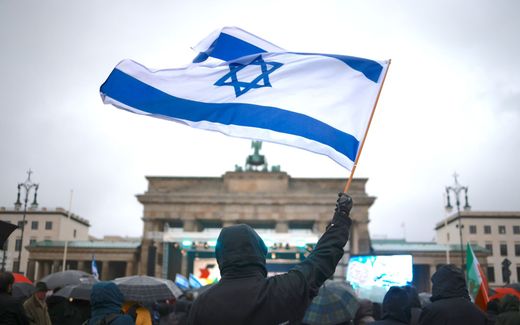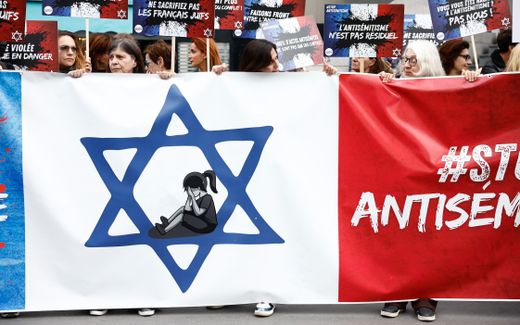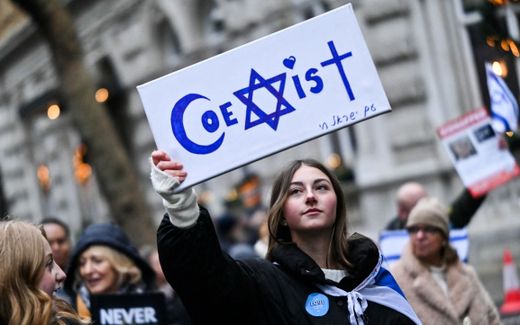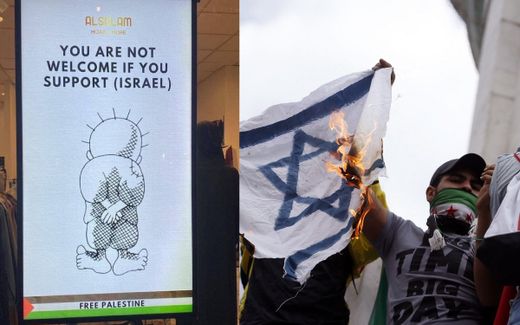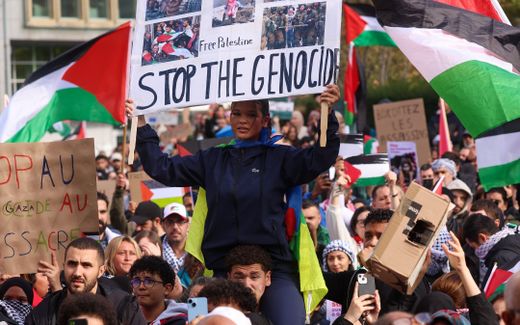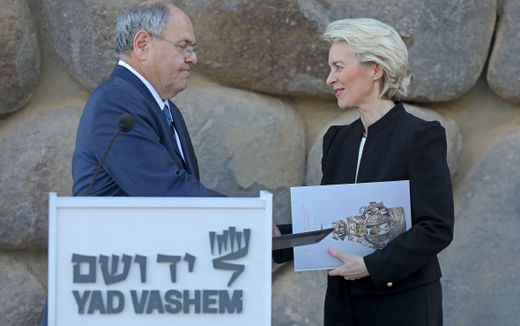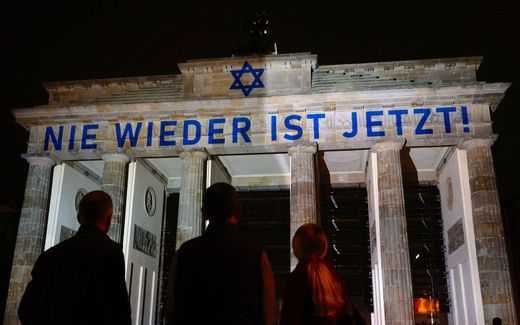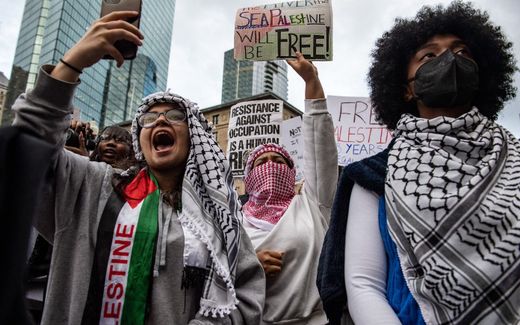How could Amsterdam get rid of antisemitism again?
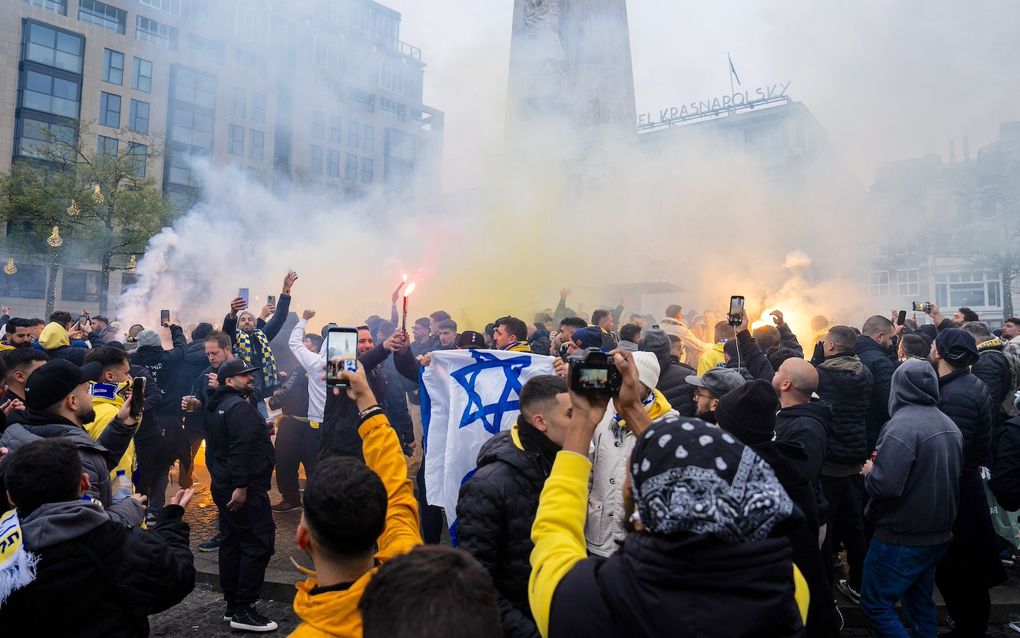
Unrest between supporters of Maccabi Tel Aviv and others at the central square in Amsterdam. Photo ANP, Jeroen Jumelet
Western Europe
For many, the name Maccabi Tel Aviv did not ring a bell, until last week. Now, it is forever connected with an antisemitic nightmare in Amsterdam. How can the Dutch capital become a haven again for Jews?
Stay up to date with Christian news in Europe? Sign up for CNE's newsletter.
Israeli football supporters were asked for their passports to get chased and beaten by thugs, and much happened during the Pogrom Night commemoration in Amsterdam’s large synagogue. The anti-Jewish hit-and-run had the power to shock the country and the Western world.
Amid renewed discussions on antisemitism, Amsterdam’s Rabbi Lody Van De Kamp and historian in Jewish studies Prof. Bart Wallet offer varying perspectives on moving forward.

The confrontation involving the Maccabi Tel Aviv fans has not been the only incident in recent years. Synagogues and schools throughout the Netherlands have received several antisemitic threats, and some have been the target of having swastikas painted on them. At the grand opening of the Holocaust Museum in Amsterdam earlier this year, several protestors were arrested for throwing stones at those involved in the event.
Wallet, a professor of Jewish studies, confirmed that these antisemitic incidents are undergoing a resurgence within Dutch society.
From the mid-1960s until 2000, antisemitism was a taboo subject, he says. Although antisemitic statements have always been present, violence against Jews has become a recent phenomenon, and the internet may be to blame for what we are seeing now, he tells in his office at the University of Amsterdam.
Wallet also believes that many Dutch youth are collecting antisemitic ideas on social media. At the same time, older generations have grown up seeing antisemitism as taboo, and this can cause conflict with the younger ones.
Considering the current situation, he has seen politicians on the right and left condemning violence as well as opening discussions on the growing trend of global antisemitism. However, Wallet says these actions are not enough, as many political groups often stay quiet in their communities.
Culprits and victims
At another location in Amsterdam, we meet Rabbi Lody Van de Kamp, an Orthodox Jew living near the Dutch capital. He offers a different course of action in confronting the violence among Jews. Although he acknowledges that the current situation has deteriorated, the media’s framing of culprits and victims is to blame for increasing tensions.

There is a lot of framing, he complains. “Of course, everything comes up with culprits and victims. Muslims are the bad guys, and the Jews are the good guys. That is the quote of the Prime Minister and the Mayor of Amsterdam. Instead of trying to bring the community somewhere together, now we are in a separate world,” he says.
The media have painted a bleak picture of Jewish rights in the country. Still, Rabbi Van de Kamp points out that free speech in the Netherlands is often overlooked. For example, free speech is considered holy in the country, and if someone wants to say something against Jews, they have that right. He says that even when statements go against national laws on defamation, there are protections in place.
Rabbi Van de Kamp is not afraid of those who want to criticise Israel or the Jewish community. He believes it is up to the Jews to educate and inform in the midst of increased persecution. Van de Kamp recently spent his time addressing universities and schools on the Israel-Gaza war and about the Jewish community in the Netherlands. He has spoken to some groups that have individuals from countries that have been hostile towards Israel. Sometimes, these talks do not end as well as expected.

One person told him that the Jews had killed Jesus. While such a statement is viewed as an insult to Jews, the Rabbi saw it as an opportunity to have a theological discussion around that belief.
Despite the need for more education, Bart Wallet thinks that real action lies within the hands of citizens. Amsterdam may have enjoyed a long tradition of having Jewish mayors running the city’s affairs. He also sees the current mayor, Femke Halsema, trying to unite the country, but the situation remains outside of her control. Rather, it is up to the city’s people to come together.
“I think it is essential to acknowledge the fear. We have a shared responsibility of our city,” he says about both Jews and non-Jews. Wallet himself is a Christian with a Reformed background.
The future
Some believe that the growing number of immigrants is part of the problem. Wallet does not believe this. He has noticed that many of his students, including those from Syria and Iran, became interested in Jewish culture.
“So I think one of the dangers is that migrants or the Muslim community is perceived as a monolith. As if everyone thinks the same and as if there are no dynamics or change. Absolutely not. We need to be very nuanced when it comes to this argument.”
While many Jewish communities around Europe are in decline, that decrease has also been witnessed in the Netherlands. Some that are based in the countryside might close altogether, he noted. Wallet estimates that the current Jewish population in the Netherlands is around 37,000.

Yet, other aspects of Jewish culture are experiencing a restoration. Most Israelis in today’s Dutch society also identify as Jewish. While Amsterdam had the Jewish Council in World War II, an institution that played a painful role in the deportation of Jews, signs of healing are beginning to show among that generation’s Jewish grandchildren and great-grandchildren.
“There are always potential surprises,” he says.
Related Articles


